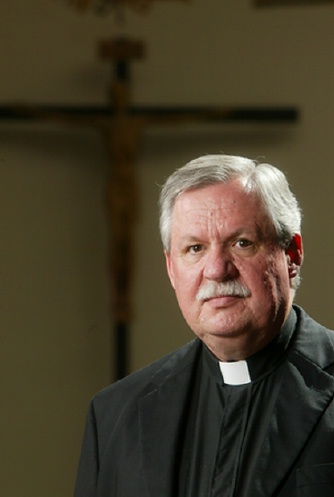The Good News of Our Lord Jesus Christ

1. God exists. God created all things and saw that they were good.
2. God created us in God’s own image and works actively with us in all creation to build the Kingdom. The Incarnation was the full, complete and particular manifestation of God to creation in creation, a manifestation of the love of the Creator for the Created.
3. God confers on us life itself and a fundamental, inalienable dignity, which is the foundation of all moral behavior, that is, how we must treat ourselves, one another and God our Creator.
4. God confers meaning, significance, and value on our lives. We are unable to confer, create, or obtain these qualities for ourselves, God being their sole source. When we know that God has given us these qualities, we can come to live in peace and joy. Without these qualities, we cannot find such peace and joy (cf “Our hearts are restless until they find their rest in you”
5. God reveals Godself to us in our individual prayer, in community prayer, in the sacraments (notably the Eucharist), and in the concrete events of our lives. God always takes the initiative in inviting us into relationship, since God’s love is prevenient – it always comes first. God communicates with each one of us in terms that are clearest and most meaningful to us individually, and his central message is invitation to relationship.
6. God’s self-revelation to us invites us into a loving relationship: “I call you friends…love me as I have loved you” (John 15). This love constitutes the foundation and opportunity for fuller and more abundant life as well as serving as a cushion against whatever challenges and difficulties our lives hold for us.
7. God invites us into a state of life – married, committed life, celibate in religious or clerical life, or single. God also invites us into a life’s work (or works), which may be our career in the marketplace, in the home, or both. Or, it may be in vowed life in the church. This work is our vocation. God offers this vocation as an invitation, not a requirement, because God always respects our free will.
8. As part of our vocation God gives us gifts (for teaching, preaching, healing, care giving, leading, parenting, and so on) by which to serve God, the church, our families, communities, and the world (I Corinthians 12 – 14.). God asks all people to express a special concern for the poor. We contribute to the Building of the
9. As we undertake the responsibilities of our vocation in our state of life, the forces of evil – envy, anger, resentment, prejudice, lust, small-mindedness, self-centeredness, deceit, and so on – begin to rise in opposition to our efforts. These forces often lead us to worry, to be fearful, to be hurt and discouraged. This opposition may make us suffer, and we may find our work at an impasse. Like Jesus of Nazareth and in partnership with him, we have our times in the Garden, we stand accused and humiliated before the authorities, and we are crucified before all the people.
10. When we face hostility in living out our vocation, God gives us peace, hope and courage in the face of our suffering and so gives our suffering meaning. The peace, hope and courage God gives us is the rock upon which we can stand, the foundation that allows us to face hostility and to continue the work of our vocation. As we continue to commit ourselves to the Father, he strengthens us. Our model and assurance is the Father who gave Jesus hope and courage in the
11. When we face opposition in living out our vocation, God “makes a way out of no way” through the obstacles and the hurt, so that the opposition – possibly exacerbated by our own sinfulness and weakness - fails to halt the Building of the Kingdom.
12. We are able to feel hopeful and courageous as we face hostility and opposition because through his Passion, Death, and Resurrection, Jesus of Nazareth in partnership with the Father broke the power of sin and death to hurt us ultimately and to prevent the Building of the Kingdom. “Dying you destroyed our death, rising you restored our life…” In the Eucharist Jesus’ body is broken and his blood poured out yet again, the power of sin and death broken yet again for us, and the Father’s love and new life sent out among his people through descent yet again of the Holy Spirit.
13. God offers us forgiveness for our own sins and healing of the pain we experience through the world’s sin visited upon us. “Lord, I am unworthy to receive you, but only say the word, and I shall be healed.” God’s love poured into our relationship with him dissolves our sin and our pain. God heals our memories, heals the current pain of our past hurts. God also curbs the power of addictive behaviors. We can therefore come to live increasingly in a new freedom and peacefulness with ourselves and others. “By your cross and resurrection you have set us free. You are the Savior of the world.”
14. As we live out our vocation, God blesses us with richness of life, with opportunities we cannot give ourselves, opportunities that include challenges (Mark 10:29ff).
15. God leads us through physical death into newer and fuller union with God in the next life. Death cannot harm us. In fact, it is the entry point into the deepest possible love and the fullness of life (Revelation 21).
This is the Good News of Our Lord Jesus Christ. The Good News fulfills God’s promise to us, proclaimed by Jesus during his public ministry and described by Jesus in the Gospel of John as fuller and more abundant life (John 10) and complete joy (John 15).



8 Comments:
Terrific and inspiring. Keep it up.
Peace.
I second Pat's comment - I hope there's more to come. AMDG,
Joe K sj
I admire your resolve, but these words still do not settle the intellectual argument. They are words of a faith, nothing more.
anonymous,
my words weren't intended to settle the intellectual argument you have in mind. (i assume you mean the intellectual proof for the existence of God.) there is no intellectual proof. arguments that call themselves proofs, like Aquinas' five proofs, simply outline a way of thinking for those who already believe. but i claim that we can each demonstrate the truthfulness of my words in our own experience of God, through the spirituality of St Ignatius, among other ways. but that demonstration isn't an intellectual proof.
fr ben
Hi you're Christian web site is such a blessing.
Keep up the good work, I am praying for you.
Thanks LaVern Williams
P.S. if you get time stop by my website and say hi anytime at.........Solid Rock Bible Ministries - of Fresno CA
Thank yu for yur website. I grew up Catholic but now attend an evangelical church because I believe that the RC church misses some essential doctrine found in the Word, particularly Paul's new covenant writings.
I have also found a difference, generally, in the people's lives and attitudes, between Catholics and evangelicals. The Catholics seem to me to live the same as everybody else, but attend mass on Sunday. The evangelicals, again generally, incorporate their faith in their daily lives far more than Catholics.
My prayer for the RC Church is that it wouldn't rely so much on tradition and would rely in the inspired word of God. Paul teaches the Good News so simply, yet when I read the RC Catechism it is EXTREMELY difficult to follow.
Paul's letter to the Romans is very clear and, in a very detailed yet very simple way, says it all.
Anyway, thanks for reaching out to people. I have met some who are teaching a false gospel and I wouldn't want to them, but I pray that they go back to the Word.
2 Tim 3:16
May God direct you and bless you.
Robert
Thank you for your website. I grew up Catholic, and spent 40 years in the RC Church. I contemplated the priesthood and spent time with the Dominican order. Now I attend an evangelical church because I believe that the RC church misses essential doctrine found in the Word, particularly Paul's new covenant writings.
I was extremely active in the RC Church, and recently in evangelical churches. I have found a stark difference, generally, in the people's lives and attitudes, between Catholics and evangelicals. The Catholics seem to me to live the same as everybody else, but attend mass on Sunday. The evangelicals, again generally, incorporate their faith in their daily lives far more than Catholics.
My prayer for the RC Church is that it wouldn't rely so much on tradition but would rely on the inspired word of God.
Paul teaches the Good News so simply, yet when I read the RC Catechism it is EXTREMELY difficult to follow. In stark contrast, Paul's letter to the Romans is very clear, very detailed, logical in the context of the whole Bible, and complete.
Anyway, thanks for reaching out to people. I have met some in the RC church, and other churches too, who are teaching a false gospel. I wouldn't want to be them, but I pray that they go back to the Word and do not teach a false gospel.
2 Tim 3:16
May God direct you and bless you.
Robert
Thats really cool. I am a science person, but my parents used to make me go to church. I like biology and chemistry and i support evolution, but i also agree with creationism, to some regard. I will not BLINDLY follow a "superior being" through word of humans who only created the concept of religion as a way to have order in society. I do however believe that there had to be some creating force whether it was God in the Christian faith, or some other god. When you get to questions like "where did the earth come from?" "the big bang" "what banged (not perverted) and where did it come from?" "it was just there" Some things are unexplainable, and even through superior knowledge in the next 10-25 years, i believe there will always be a factor of unexplained occurrences in life
Post a Comment
<< Home